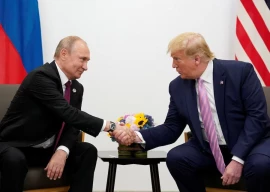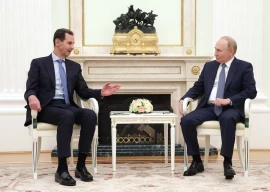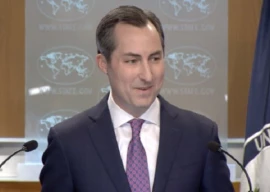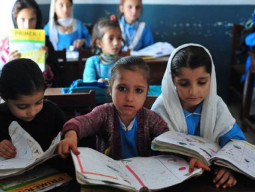
By winking at India’s nuclear weapons programme and opening up exports of nuclear fuel and material to the rising Asian power, the US had created an opening for China and Pakistan to pursue similar cooperation, despite the risk of proliferation, analysts said.
Under the 2008 deal, the US lifted a 35-year embargo on nuclear trade with India and then leaned on the 46-member Nuclear Suppliers Group (NSG,) that lays the rules for peaceful use of nuclear exports, to grant an exemption so that a $150 billion market opened up.
China too is hoping to help meet the energy needs of Pakistan which was denied a similar deal by the US on the grounds that it had to improve its nuclear proliferation record first.
This week, as Chinese Premier Wen Jiabao travels to India first and then Pakistan, where he is expected to affirm strategic ties, the race to expand nuclear energy programmes in South Asia has added another layer of instability in a troubled region.
“The Chinese are proceeding with the export of the reactors, but they want to be prudent about it. They might want to look for some kind of support for it,” said Mark Hibbs, an expert on South Asian nuclear issues at the Carnegie Endowment for International Peace.
China plans to build two new reactors at Chashma in addition to the one already operating there and another nearing completion. Beijing says it is supplying the reactors to Pakistan under a 2003 bilateral agreement that it signed a year before it joined the NSG, and that its cooperation with Pakistan is purely for peaceful purposes.
“China and Pakistan will further develop their nuclear energy cooperation, and this is restricted to the civilian nuclear sphere, and conforms to the international duties assumed by both countries,” Liang Wentao, a deputy director general at the Ministry of Commerce, told reporters ahead of Wen’s trip. “It is entirely for peaceful purposes, and comes under the safeguards and oversight of the International Atomic Energy Agency.”
No consensus
China has not formally approached the NSG to grant Pakistan a waiver in the same way the US, helped by Britain, France and Russia, sought one for India, and it may well argue that it does not need to win NSG clearance since the additional nuclear reactors were “grandfathered” before it became a member.
But Hibbs said the US and some other members have indicated that while China informed the NSG about its nuclear collaboration with Pakistan at the time of joining the cartel, including that it was building two reactors, it did not mention plans to build reactors 3 and 4.
At the last NSG meeting in New Zealand this year, Ireland raised the issue of new Chinese reactors for Pakistan, but China declined to comment. The next meeting is in June, but it is unclear what stand the group will take. “There is as yet no consensus in the NSG how to deal with this,” said Hibbs.
The group could either accept China’s assertion that the reactors were part of an ongoing project before it joined the group, or it could formally protest the sale of the additional reactors as a violation of its guidelines, or simply ignore it.
The bottom line is that both China and Pakistan see an opening for greater nuclear collaboration after the India-US deal pushed by the Bush administration that many saw as turning the rules of nuclear non-proliferation upside down.
Published in The Express Tribune, December 16th, 2010.





1719728674-0/BeFunky-collage-(90)1719728674-0-270x192.webp)





1734511806-0/Untitled-design-(5)1734511806-0-270x192.webp)
1734587529-0/Express-Tribune-(1)1734587529-0-270x192.webp)


1734468458-0/Copy-of-Untitled-(50)1734468458-0-270x192.webp)







COMMENTS (15)
Comments are moderated and generally will be posted if they are on-topic and not abusive.
For more information, please see our Comments FAQ